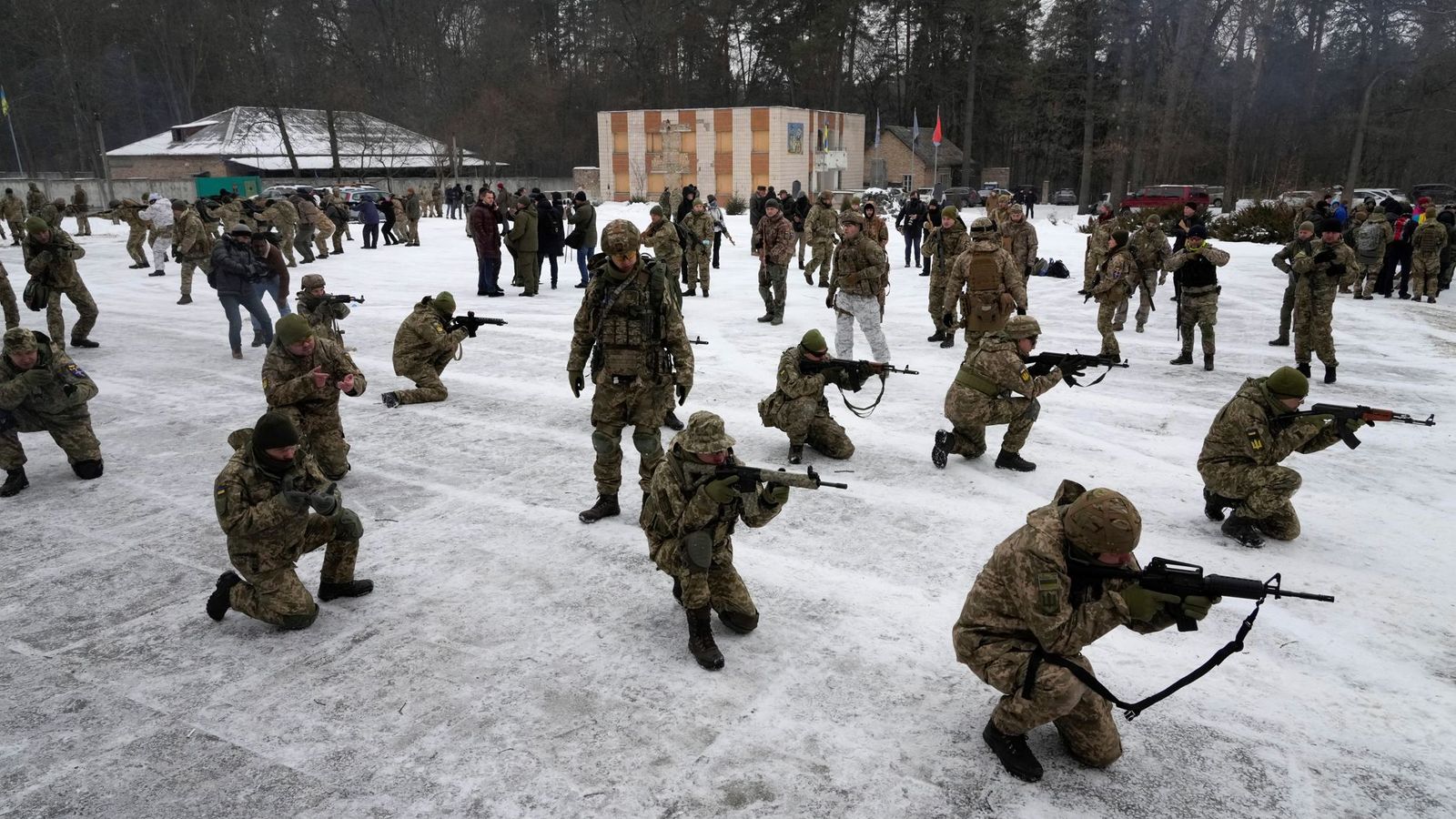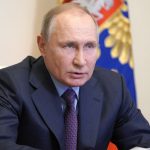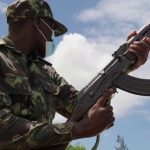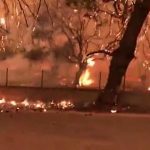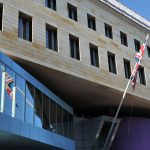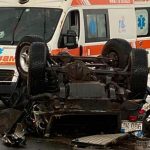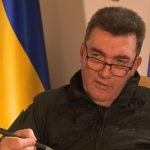Boris Johnson and Emmanuel Macron have agreed that countries on NATO’s eastern flank must be “fully defended against malicious Russian activity”.
That applies “wherever and however it might occur”, the two leaders added.
Amid continuing concerns that Russia may invade Ukraine, the British prime minister and French president also “stressed that NATO must be united in the face of Russian aggression”, Downing Street said.
Please use Chrome browser for a more accessible video player
In other developments, US troops have arrived at an airbase in southeastern Poland.
President Biden has ordered that 3,000 troops be sent to support NATO allies as tensions between the West and Moscow continue to increase.
And the leaders of Germany, France and Poland will meet in Berlin on Tuesday, in an attempt at de-escalation.
Mr Johnson and Mr Macron said that solving the dispute through diplomatic means must “remain the overriding priority”.
They also agreed to “work together to develop a package of sanctions which would come into force immediately should Russia further invade Ukraine”.
Russia has denied it is planning to invade, despite deploying 100,000 troops to the border.
Please use Chrome browser for a more accessible video player
Moscow is demanding that NATO never admits Ukraine as a member.
President Vladimir Putin met Chinese leader Xi Jinping prior to the opening of the Winter Olympics in Beijing.
Read more:
Putin turns to China as tensions with western leaders increase
‘We need to get used to this’: Ukrainians fatalistic about latest Russian threat
Mr Macron has also spoken to NATO’s Secretary General Jens Stoltenberg.
The French leader stressed the “need to continue efforts to find through dialogue a de-escalation path” that respects the “fundamental principles of European security, the sovereignty of the states and the resulting rights”, his office said.
Meanwhile, three new signs have been observed which suggest a Russian invasion of Ukraine could be imminent.
The building of a field hospital, the movement of additional troops to the border, and the deployment of the Russian military police suggest more invasion preparations are now in place.
